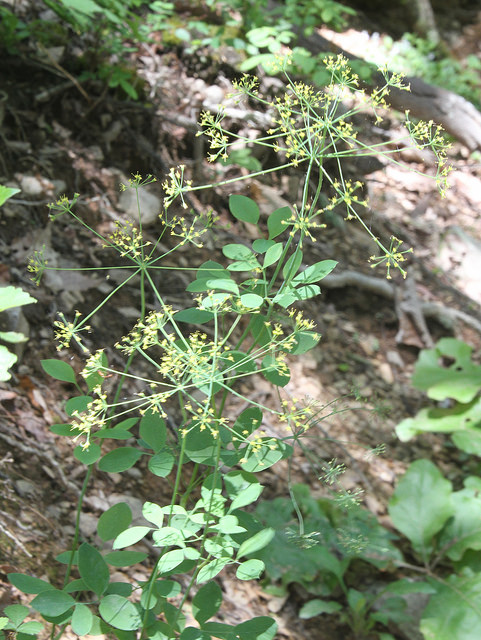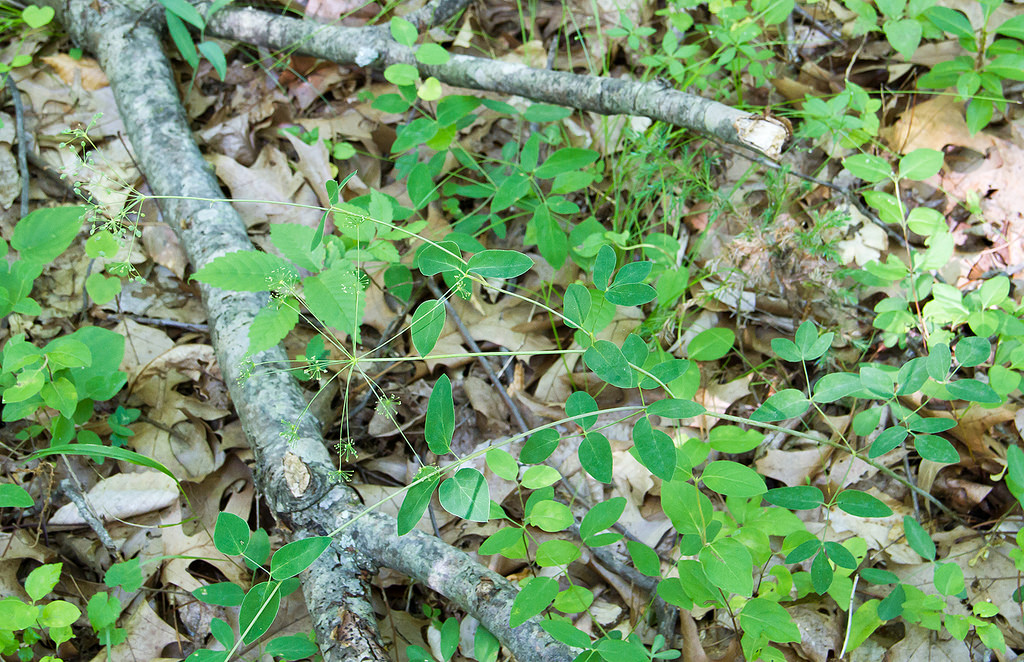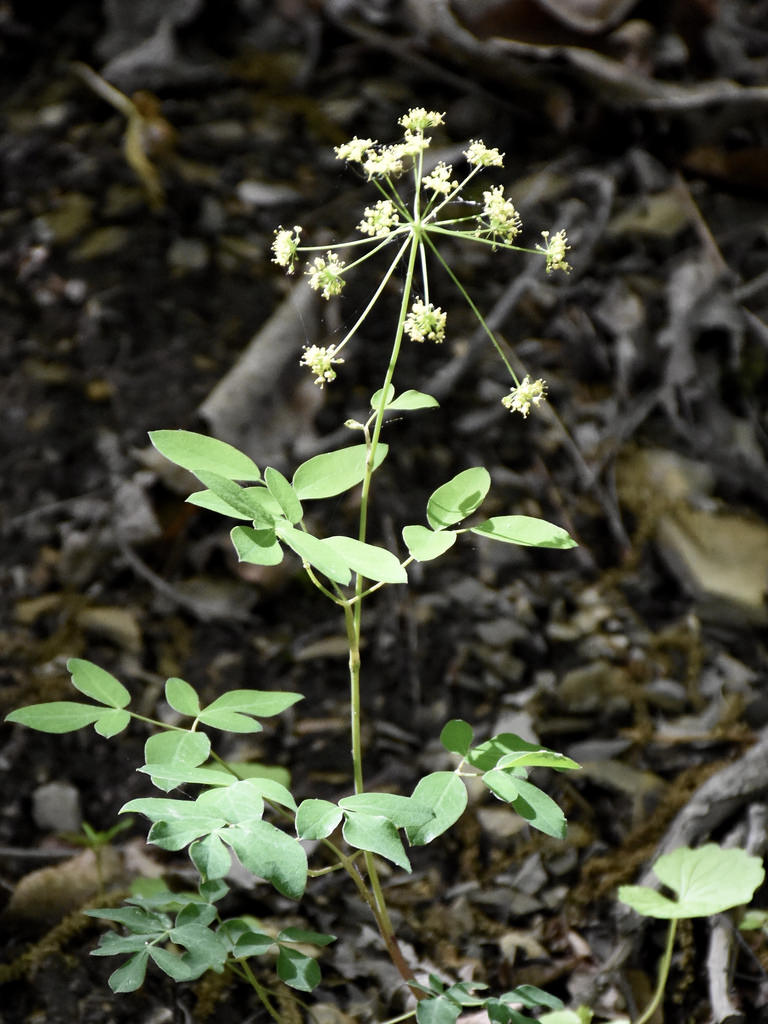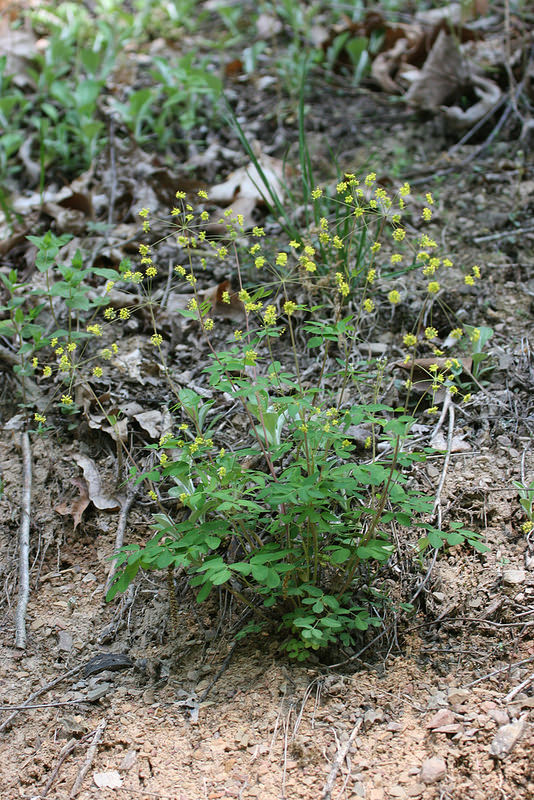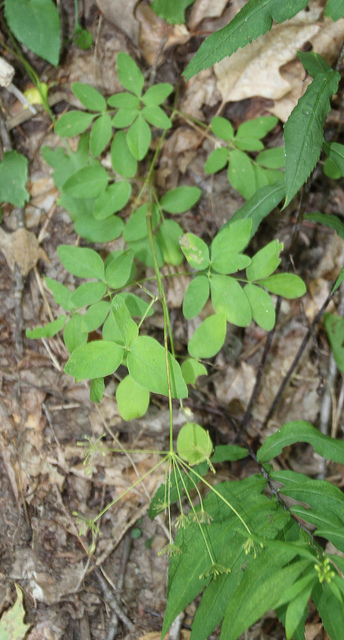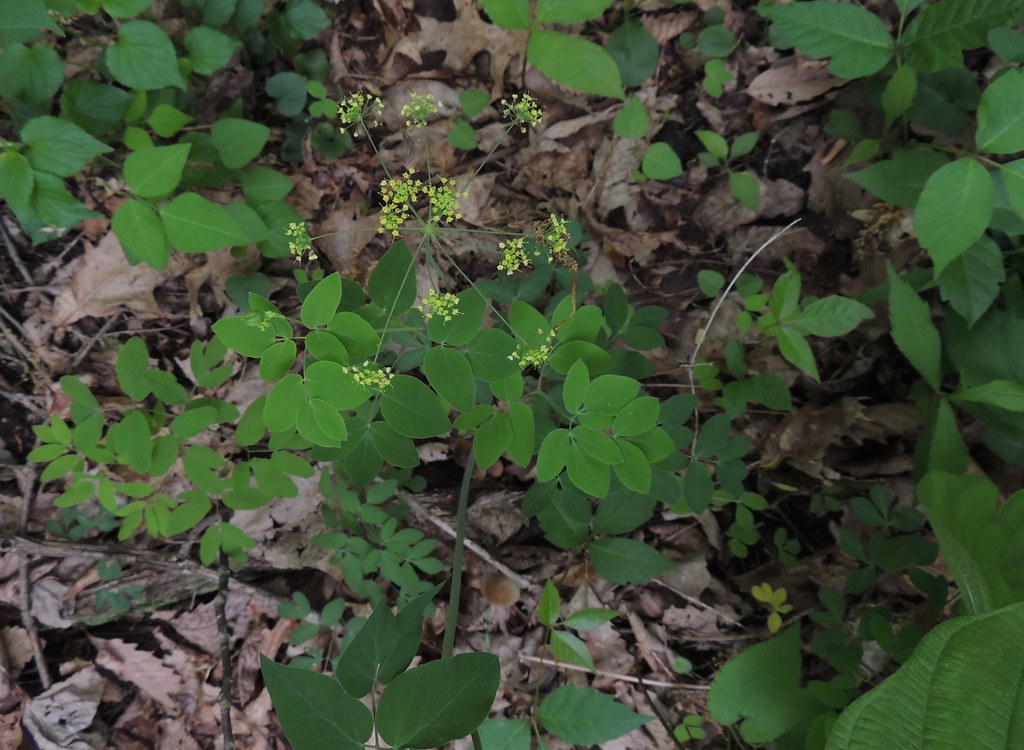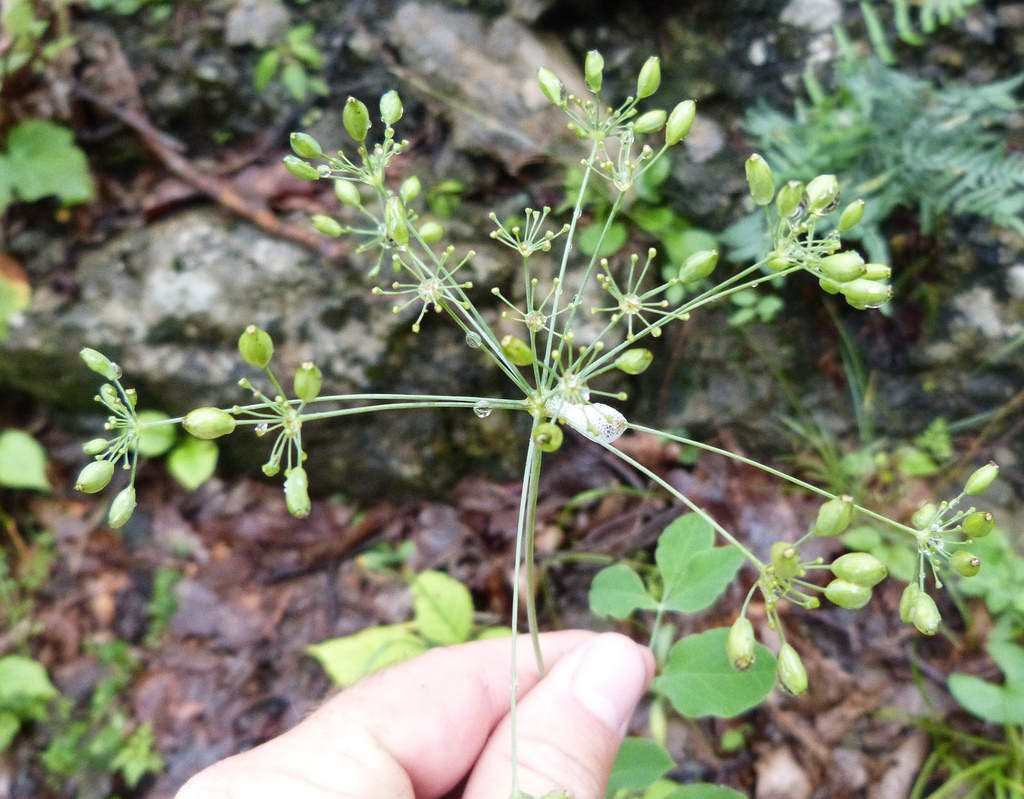Map Snapshot











52 Records
Status
Yellow Pimpernel is a locally common plant over much of the ridge and valley and Allegheny Plateau. Most of the piedmont records are not recent except for a handful from Montgomery County. Yellow Pimpernel seems to prefers dry woodlands and areas with rocky calcareous substrates. Yellow Pimpernel can be very common in shale barrens of Allegany and Washington Counties. The Kent County record is from an ancient oyster shell midden that holds many unusual western shore plant species.
Description
Yellow Pimpernel is very similar to the rare shale barren endemic Mountain Pimpernel. Weakley's Key to the Flora of the Southern and Mid-Atlantic States, 2015 states that there are two ways to separate the two yellow pimpernel species: The fruit of Yellow Pimpernel is not winged and the fruit of Mountain Pimpernel is winged. When plants are fresh the crushed leaves of Yellow Pimpernel smell of celery and the crushed leaves of Mountain Pimpernel smell of licorice/anise.
Seasonality Snapshot
Source: Wikipedia
| Taenidia integerrima | |
|---|---|

| |
| Scientific classification | |
| Kingdom: | Plantae |
| Clade: | Tracheophytes |
| Clade: | Angiosperms |
| Clade: | Eudicots |
| Clade: | Asterids |
| Order: | Apiales |
| Family: | Apiaceae |
| Genus: | Taenidia |
| Species: | T. integerrima
|
| Binomial name | |
| Taenidia integerrima | |
Taenidia integerrima, the yellow pimpernel,[1] is an herbaceous plant in the parsley family. It is native to the eastern North America, where it is widespread.[2] Its natural habitat is rocky prairies and woodlands, often over calcareous substrates.[3][4] It is a perennial.[5]
Conservation status in the United States
[edit]It is listed as endangered in Connecticut,[6] as historical in Rhode Island, and threatened in Vermont.[7]
Native American ethnobotany
[edit]The Menominee take an infusion of root taken for pulmonary troubles, chew the steeped root for 'bronchial affections',[8] and use it as a seasoner for other remedies because of the good smell.[9] The Ojibwe smoke the seeds in a pipe before hunting for good luck.[10]
Gallery
[edit]-
An illustration showing detail of the reproductive features
References
[edit]- ^ NRCS. "Taenidia integerrima". PLANTS Database. United States Department of Agriculture (USDA). Retrieved 26 May 2016.
- ^ "Taenidia integerrima". County-level distribution map from the North American Plant Atlas (NAPA). Biota of North America Program (BONAP). 2014. Retrieved 8 July 2017.
- ^ "Flora of the Southern and Mid-Atlantic States".
- ^ Illinois Wildflowers
- ^ "Plants Profile for Taenidia integerrima (yellow pimpernel )". plants.usda.gov. Retrieved 24 January 2018.
- ^ "Connecticut's Endangered, Threatened and Special Concern Species 2015". State of Connecticut Department of Energy and Environmental Protection Bureau of Natural Resources. Retrieved 19 January 2018. (Note: This list is newer than the one used by plants.usda.gov and is more up-to-date.)
- ^ "Plants Profile for Taenidia integerrima (yellow pimpernel )". plants.usda.gov. Retrieved 24 January 2018.
- ^ Smith, Huron H., 1923, Ethnobotany of the Menomini Indians, Bulletin of the Public Museum of the City of Milwaukee 4:1-174, page 56
- ^ Smith, Huron H., 1928, Ethnobotany of the Meskwaki Indians, Bulletin of the Public Museum of the City of Milwaukee 4:175-326, page 250
- ^ Smith, Huron H., 1932, Ethnobotany of the Ojibwe Indians, Bulletin of the Public Museum of Milwaukee 4:327-525, page 432
